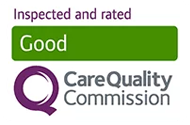Keeping our Communities Safe

25/02/2021
It is an understatement to say that it has been a difficult 12 months for most people due to the Covid-19 pandemic. We are all learning to live with the ongoing restrictions and the impact of the public health, and economic emergencies. There is another ‘sting in the tail’ too, the emergence of those who seek to take advantage of the increased concern around the spread of Covid-19, especially targeting older people.
Fortunately for us there are also those who work hard to raise awareness of such scams and regularly provide updates the latest scams, how to easily identify them and tips on how to keep you and your loved ones safe. One of the best sources is age UK as they provide information at a national and local level. Here are some of the recent Covid-19 scam related activity that have been reported:
Fake lockdown fines: a bogus text message saying you have been fined for stepping outside during the coronavirus lockdown. The scam message claims to be from the Government, telling the recipient their movements have been monitored through their phone and they must pay a fine or face a more severe penalty.
HMRC goodwill payment: police are warning of a fake message designed to steal your account details that reads ‘As part of the NHS promise to battle the COVID-19 virus, HMRC has issued a payment of £258 as a goodwill payment’.
Telephone deception: older people have been contacted by fraudsters who pretend to be a relative currently being treated in hospital after contracting COVID-19. In some cases, the fraudster will impersonate a doctor. Following this, the victims are asked to pay for the costs of the medical treatment urgently by transferring money or handing over cash or other valuables to “hospital representatives” in person.
At all times, not just Covid-19, it is worth reminding ourselves of the following 5 golden rules to keep ourselves safe; 1. Never give a stranger your personal information or bank details, no matter who they claim to be. 2. Charities/and or authorities will never ask for bank details over the phone. 3. If someone visits you in person, always ask to see their ID & don’t feel bad about asking someone to leave if you don’t know them. 4. Never share any account log in details with people i.e., usernames or passwords. 5. Don't rush into anything, if an offer seems too good to be true, it probably is.
For more information on this subject visit www.ageuk.org.uk. Both age UK Stockport and Cheshire East have dedicated web pages with news on what’s happening in the local area and they also share details of prevention initiatives too.
CONTACT US
Registered Office:
29 The Paddock,
Handforth SK9 3HQ
Telephone: 01625 526850
Email: info@alicechilton.com
alice chilton In-Home Care Services Limited is Registered in England & Wales No. 8984744
Copyright © All Rights Reserved.

